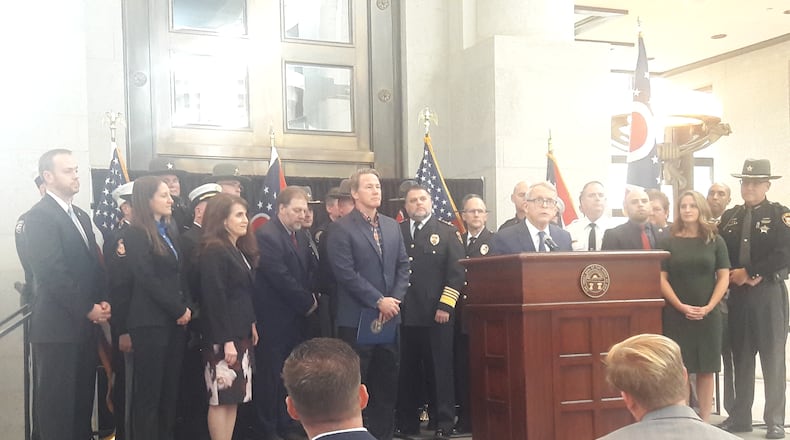“I applaud the legislature’s swift action to pass this important bill as we work together to protect our citizens and first responders, keep qualified Ohioans on the job, and help those who have been hit hard as a result of the COVID-19 pandemic,” DeWine said in a news release. “These critical funds will make our communities safer, will help caregivers, teachers, and others in front-line professions to stay on the job, and will help those struggling to pay their bills remain in their homes. Ohio is already coming out of this pandemic stronger than before, and by strategically using these funds we will continue our resurgence.”
The bill includes many previously announced grants, including $250 million for law enforcement that DeWine announced on Monday. Legislators have said deadlines for disbursing the federal dollars are approaching.
State Rep. Bride Rose Sweeney, D-Cleveland, said $2.5 billion of the money will go to education.
Grants for childcare, enabling more parents to return to work, will take $659 million of the funding.
State Rep. Allison Russo, D-Columbus, noted that a Senate amendment waived standards for childcare oversight through the end of 2022. She asked DeWine to use his line-item veto on that provision.
Telehealth
The House sealed its approval of permanently expanding telehealth services by unanimously accepting Senate amendments to House Bill 122, which had already unanimously passed both chambers.
The Senate’s changes added some medical specialties to the list, but remained in line with the bill’s intent, said state Rep. Mark Fraizer, R-Newark, who sponsored the bill.
The bill allows psychologists, speech and hearing therapists, physical therapists, counselors and social workers, dietitians, optometrists, chiropractors and several other health care specialties to provide services by telehealth. It would also require insurance, public or private, to cover those services.
“This is especially going to impact the underserved areas in our state,” Holmes said.
Knives
A bill to extend protections for knifemakers, which passed a House committee Thursday morning, got 55-36 approval from the full House in the afternoon.
House Bill 243 would prohibit Ohio governments from regulating or taxing knives or knife parts, and prohibit taxing knife manufacture more highly than other commercial goods.
Last year legislators decriminalized possession of many knives, said bill sponsor state Rep. Al Cutrona, R-Canfield, and his bill would prevent cities from passing more restrictive knife laws than the state overall.
State Rep. Richard Brown, D-Canal Winchester, said the bill would continue erosion of municipalities’ local control. There is no evidence of cities or police agencies prosecuting people for carrying varieties of knives from one jurisdiction to another, he said.
“There is simply no such problem to fix here,” Brown said.
Daylight Savings Time
House members devoted long debate Thursday, and an eventual 58-33 affirmative vote, to a matter they can’t really change.
House Concurrent Resolution 13, sponsored by state Reps. Rodney Creech, R-West Alexandria, and Kyle Koehler, R-Springfield, urges the federal government to make Daylight Saving Time permanent by passing the Sunshine Protection Act.
State Rep. Mary Lightbody, D-Westerville, spoke against the idea. It would make schools start in darkness on the coldest days of the year, particularly endangering students who have to walk to school, she said.
Koehler countered that schools already start before dark in the wintertime, and that schools and businesses can change their start times if they want.
The Sunshine Protection Act, now in congressional committees, has been introduced several times before without success. The Ohio General Assembly has regularly passed resolutions similar to HCR 13 since 2018.
About the Author

